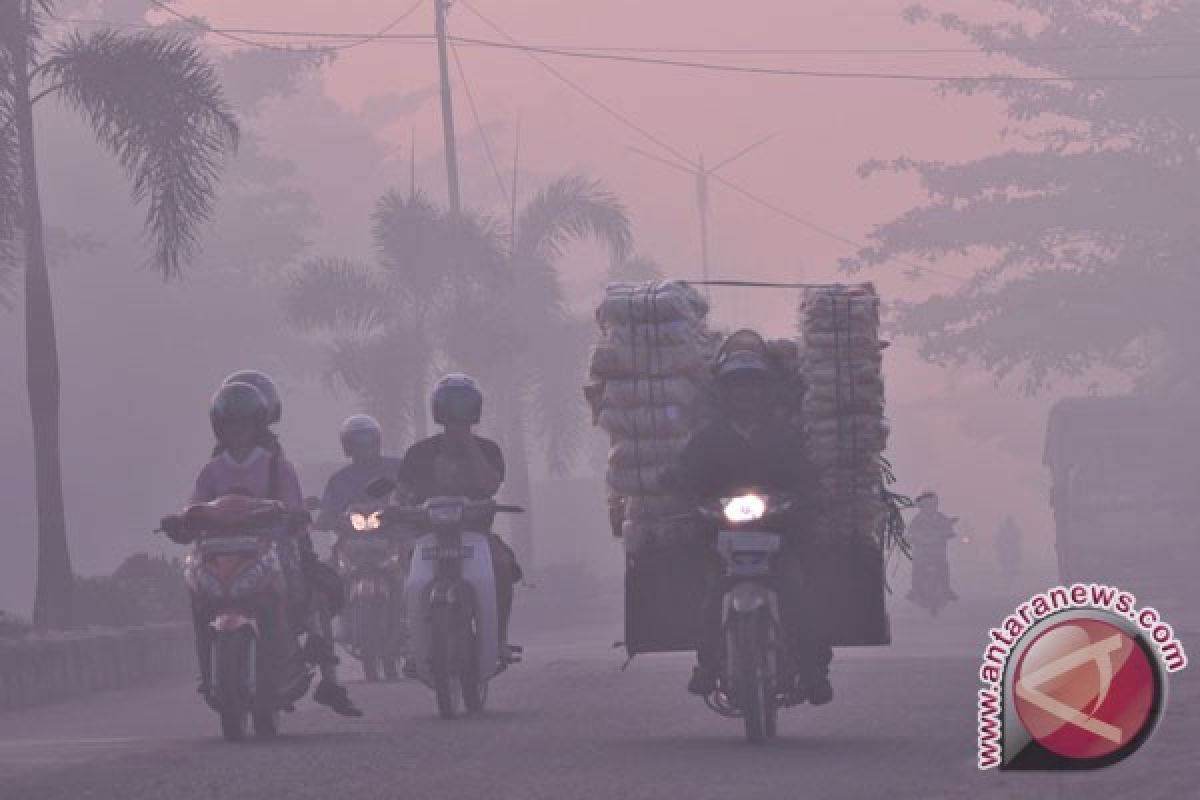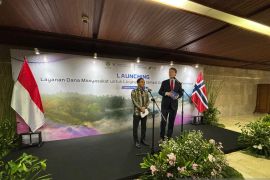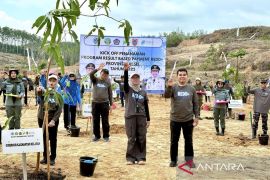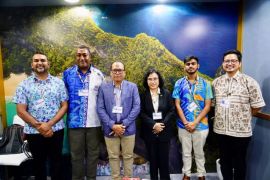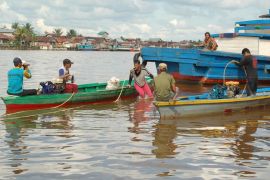First, on September 8, 2011, President Susilo Bambang Yudhoyono (SBY) signed Presidential Decree Decree No. 25 of 2011 to extend the work period for the Reducing Emissions from Deforestation and Forest Degradation (REDD) Task Force, until December 31, 2012.
Second, the head of state signed Presidential Decree no. 16/2011 on the National Action Plan on Greenhouse Gas Emission Reduction, according to Cabinet Secretary Dipo Alam on Monday (Sept. 26).
When speaking in the G20 summit in the US city of Pittsburgh in September 2009, President Yudhoyono said the government was crafting a policy that would cut emissions by 26 percent by 2020 from "business as usual" (BAU) levels. With international support, he said he was confident Indonesia could cut emissions by as much as 41 percent.
Indonesia, the home of the world`s third largest forest area after Brazil and Congo, has often been claimed as a major CO2 emitter due to rampant illegal logging activities an forest fires in the country having around 137 million hectares of forest area.
The REDD+ Task Force was established by Presidential Decree No. 19 of 2010, in May 2010 following the signing of a Letter of Intent on the implementation of REDD+ between Indonesia and Norway.
The first task force`s term of office ended on June 30, 2011.
The current Task Force is headed by Kuntoro Mangkusubroto, Chairman of the of Presidential Working Unit on Development Monitoring (UKP4).
"The new Task Force for a REDD+ agency will continue to ensure the coordination of all activities related to REDD and will report directly to the President," said Kuntoro.
The Task Force will be responsible for developing a national REDD+ strategy, the establishment of REDD+ financing mechanisms; the preparation of Measurement, Reporting and Verification (MRV) institutions and the effective implementation of the moratorium.
It also sets out to increase coordination and consultation between international, national and local actors in the REDD+ process.
To further demonstrate his commitment to dealing with the climate change impacts, President Yudhoyono signed another decree formalizing an action plan to cut greenhouse gas emissions in the country.
Presidential Decree No. 16/2011 on the National Action Plan on Greenhouse Gas Emission Reduction was issued based on the consideration that Indonesia is prone to the impacts of climate change due to its geographical position, Cabinet Secretary Dipo Alam said in a statement in Jakarta on Monday (Sept 26).
"So Indonesia must actively take part in preventive efforts through climate change mitigation," he said.
The decree is a follow up of the Bali Action Plan issued during the 13th Conference of Parties of the United Nations Climate Change Convention (COP UNFCCC) which was organized in Bali in December 2007.
A greenhouse gas (sometimes abbreviated GHG) is a gas in the atmosphere that absorbs and emits radiation within a thermal infrared range. Greenhouse gases basically consist of water vapor, carbon dioxide, methane, nitrous oxide, ozone and CFCs.
Among the adverse natural phenomena attributed to greenhouse gases is the Earth`s increased temperature or global warming that will ultimately cause extreme climate change.
In the Ministerial Meeting under the theme "REDD+ in Indonesia: Greening Human Development" during the UN General Assembly in New York on September 21, 2011, Foreign Minister Marty M. Natalegawa expressed Indonesia`s commitment once again to be proactive for the global solution in handling climate change.
"We believe the conduct of REDD+ will not only help preserve biodiversity, but also support the welfare of the surrounding community. More importantly, REDD+ offers an alternative development route where economic growth can be achieved without destroying the living environment," Marty said as quoted in the foreign ministry`s press statement in Jakarta recently.
Indonesia and Norway made use of the gathering of the World Leaders in New York to share experiences on the partnership between the two countries in conducting REDD+.
Besides Marty, the REDD+ meeting was also attended by REDD+ Task Force Chief Kuntoro Mangkusubroto, Norway`s Minister of Environmnt Erick Solheim, and New Zealand`s former PM concurrently UNDP`s current administrator.
The Norwegian government had made a billion dollar pledge last year, following President Yudhoyono`s commitment to battle deforestation and reel in the country`s rapidly-rising CO2 emissions.
The potential flow of funds from advanced nations to developing countries to deal with deforestation through REDD+ programs is estimated to reach up to US$30 billion or Rp270 trillion annually, according to the Center for International Forestry Research (CIFOR).
"The potential funds flow from developed countries to developing nations for REDD+ programs is quite huge, reaching 30 billion US dollars," Budhy Kristanty, the spokesman of CIFOR said in Bogor, West Java, on Monday (Sept 26).
Budhy said Indonesia has the highest number of REDD+ pilot projects in various development stages.
"Indonesia has become an early participant in various bilateral and multilateral initiatives to prepare the implementation of REDD+ at the national level," he said.
Under the REDD+ mechanism, it has also been agreed globally to boost conservation and sustainable forest management as well as to increase the world forest carbon reserves.
(T.F001/A014)
Reporter: by Fardah
Editor: Priyambodo RH
Copyright © ANTARA 2011
